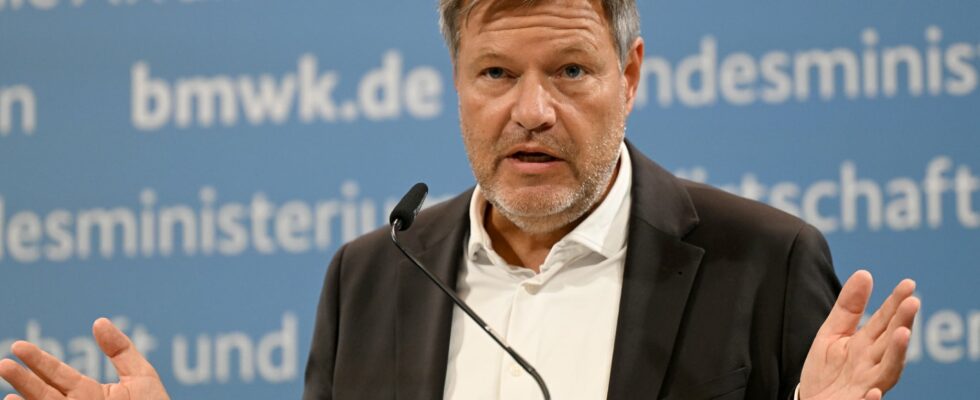The message is only a few lines long. But it could well make waves in the land of Energiewende – Germany’s energy transition. While Germany is questioning, through a parliamentary commission, the merits of its nuclear phase-out policy, the media Picafierce opponent of the Greens on this subject, publishes a confidential letter that the German Vice-Chancellor and Minister of the Economy Robert Habeck sent to the French Minister of Energy, Agnès Pannier-Runacher, during the summer of 2022 .
According to the article’s author, Daniel Gräber, Habeck “wanted to know whether French nuclear power plants would be put back into operation in time for the winter.” Key information to be able to close German power plants. All sweet and sweet – the letter starts with “Dear Agnès” and ends with “Your Robert” – the German minister writes: “You said that the objective of the French government was to have 40 gigawatts of nuclear power connected to the network on November 1, 2022 and 50 gigawatts on January 1, 2023. Can you confirm that I remember that correctly?”
The newspaper Bildwhich also publishes the document, states: “It was precisely in August 2022 that a stress test was carried out here to determine whether Germany could really do without nuclear energy – and this is precisely the January 1, 2023 that the last three power plants had to be disconnected from the network The suspicion: the exit from German nuclear power was only possible with French nuclear energy, even for Habeck in the summer of 2022.
As France did not immediately respond to the vice-chancellor’s message, he asked his close collaborators to keep it secret. A month later, Robert Habeck publicly announced that he was extending the operating life of two nuclear reactors by a few months. A decision directly linked to the state of the French network, undermined by stress corrosion problems. “The data coming from France has continually declined in recent weeks. We can no longer count on the 50 GW of nuclear power initially indicated this winter. […] Under these conditions, the use of the nuclear operational reserve is necessary to stabilize the network […]. Added to this is the fact that the EDF manager’s data has often proven to be too optimistic in the past. As minister responsible for energy security, I therefore come to say: unless this development is not what had been estimated, we will leave Isar 2 and Neckarwestheim in service in the first quarter of 2023,” indicates Robert Habeck at a press conference.
An exit strategy from the atom with serious consequences. “In the past, German power plants often supplied electricity to France in winter, when it was scarce due to electric heating. Since the phase-out of nuclear power was completed, Germany has been rather dependent on electricity. import of French electricity And almost 70% of it comes from nuclear power plants”, laments. Bild.
Something inconsistent
Words which echo those of Agnès Pannier-Runacher at the time. “There is something incoherent in massively importing French nuclear electricity and at the same time opposing any text and any legislation in the European Union which recognizes the added value of this form of carbon-free electricity”, she declared in 2023, adding that “Germany risks depending more and more on nuclear electricity from its neighbors”. And therefore from France.
“In truth, Germany buys electricity in France but also in other countries, which means that it does not rely only on French nuclear reactors,” analyzes Hartmut Lauer. It all depends on the price of electricity and the available capacity of controllable resources in Germany. For example, in November 2024, Germany had to import around 13 GW, because renewable energies did not provide electricity for more than 30 hours and the national park of so-called “controllable” means was not sufficient to cover demand.
“However, there are fears that the situation will worsen in the future, warns the expert. The German government wants, if possible, to abandon the production of electricity from coal by 2030. In the state As things stand, around 10 GW of partially hydrogen-ready gas plants would have to be built for this purpose. It is not certain that this will be enough. Such situations, with low variable renewable energy production, will occur. will reproduce in the future and Germany will then be dependent on imports, including from France,” warns the expert.
In Germany, the publication of Robert Habeck’s little letter is already causing a stir. CSU MP Andreas Lenz tells Bild : “If the German exit from nuclear power only works if the other European countries do not have to do it, then it is more than absurd.”
.
